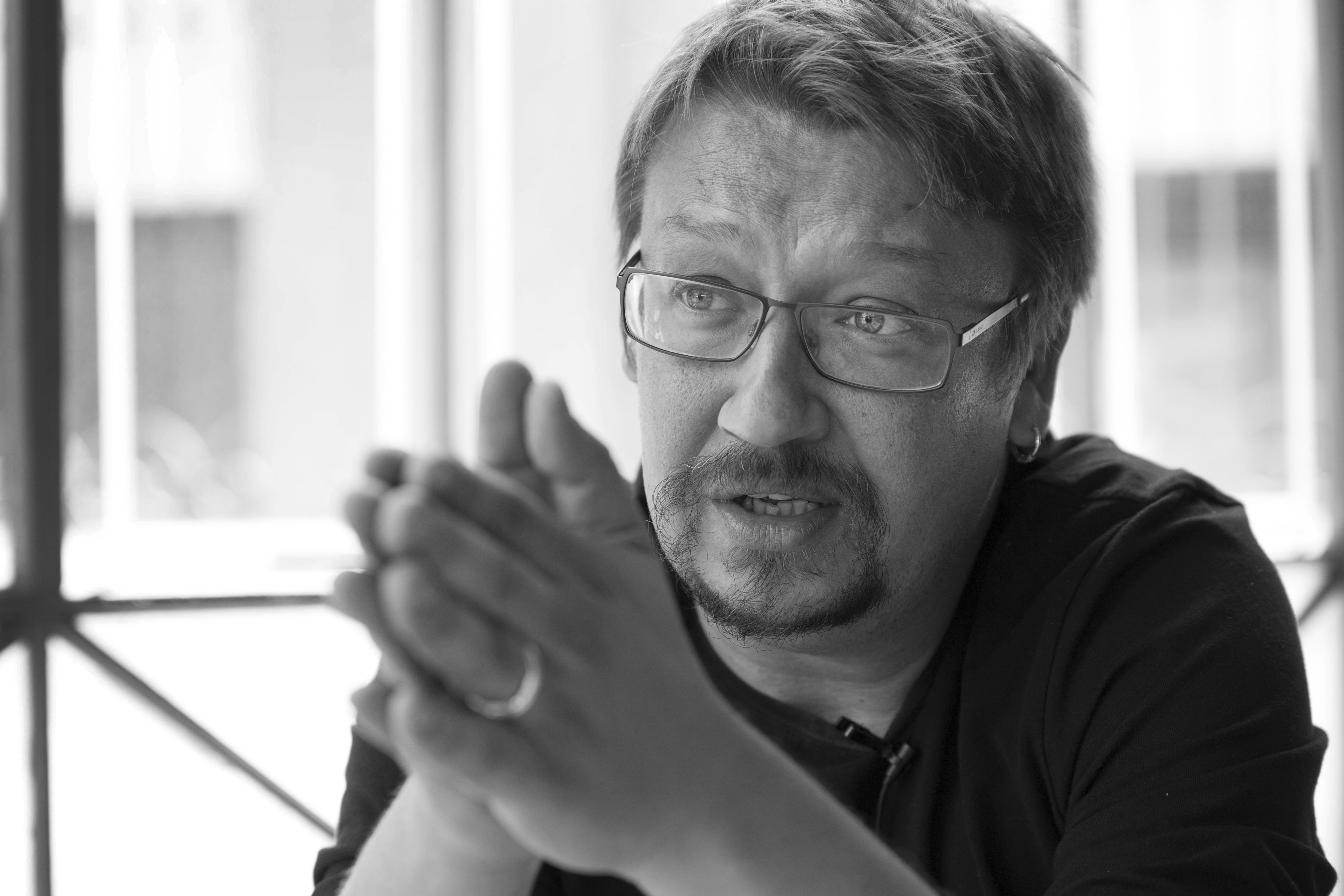The night of 4th December 2015. Beginning of the campaign for the inconclusive election that would leave Spain without a government for months. The programme .CAT on Catalonia's TV3 makes a live connection with the Coxteres de Sants hall in Barcelona, for the campaign launch of the "new left" alliance En Comú Podem - literally, In Common We Can - combining the Spanish-founded left-wing party Podemos (We Can) with its Catalan affiliates, especially the movement referred to as els Comuns (the Commons). And as well as an unfamiliar party moniker, the candidature has a completely unknown leader. He is called Xavier Domènech and he is a historian from the city of Sabadell, born in 1974. The TV presenter puts questions to him in a split screen format and Domènech answers them with his prepared responses, but he doesn't look at the camera, he sways around, he seems nervous, doesn't seem to listen well. He wears a blue T-shirt and shirt over, presents the same goatee as he does now, the same twisted mouth and the same earring that is now deliberately on display in his election posters. Only two years have gone by. Domènech, however, is not an unknown any more. Among other reasons, because he won those elections —with almost 928,000 votes in Catalonia— as well as winning the repeated Spanish general elections, six months later. And now, in spite of allowing himself quite a sloppy look at times, he is more at home, handling people in a friendly way and giving a nasal laugh, which might for example burst forth when his double on the TV3 current affairs satire Polonia is required to become Minister for Plural Nationality in a sketch that owes something to the pythonesque Ministry of Silly Walks.

In those elections of December 2015, with Catalonia yet to form a government after its own election two months earlier, Catalans opted for Domènech's left-wing alliance as a way of opposing the old Spanish bipartisan establishment and because Podemos was the only Spanish party that offered support to an independence referendum. It was Domènech the historian who gave a lesson on Catalonia to Podemos leader Pablo Iglesias in order to avoid errors like those made in Iglesias's first Barcelona meeting on 21st December 2014, when he criticised one of the great transversal moments of the independence process - an embrace between the left-wing CUP's David Fernández and the conservative Catalan president Artur Mas - and, as well, made a speech with a distinct tone of ethnic division. Perhaps it was because of those private classes that Iglesias created a "bromance" moment of his own in the Spanish government investiture in March 2016 - kissing the Sabadell historian on the mouth. Domènech's trajectory cannot be separated from those of Iglesias, his Podemos colleague Íñigo Errejón, and Commons founder and Barcelona mayor, Ada Colau. Two couples, one in Barcelona, one in Madrid, all of whom understood that they had to change the language of the left - something which the historian knows very well as an expert in the working-class struggle and the resistance to Franco's regime. They had to speak about those above, and those below, about the "caste", with the objective of imposing the mental framework, the "hegemony" to which Domènech has dedicated books, if they want to ever win. Hegemony is the way that a social class or interest group manages to present its particular interests as universal. We can speak about Antonio Gramsci or Ernesto Laclau, strategists and theoreticians of hegemony, but to explain it best, there is one of Domènech's favourite phrases, from the mouth of Margaret Thatcher: “We won the day that the Labour Party applied our policies”. The greatest inheritance of the iron lady was... Tony Blair. The conquest of cultural power comes prior to that of political power.

A social activist, doctor in History, Domènech was part of the left-wing Catalan movement Procés Constituent and managed Historical Memory Programes for the Barcelona City Council; before entering politics, as a lecturer and programme manager he earned a salary of 43,919 euros. A Catalan sovereignist, but an anti-nationalist, libertarian socialist with a marxist outlook, he has a son —called Drac by everybody - with his partner Sònia. On the day of his media debut he announced the end of political bipartisanship. It still has not arrived. And now the challenge is greater, because his candidature's proposal is squeezed between two opposing blocks. The dreamed-of hegemony is stuck between two other hegemonies. Domènech can give the key to one. Or the other. Or neither. Or break them down with a pact that right now is unthinkable. Would be scandalous. “An old world is dying. And the new is taking a long time to arrive”, said Gramsci, but he also added something which tends to get overlooked: “And in the shadows, monsters appear”.


